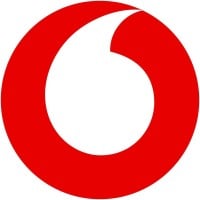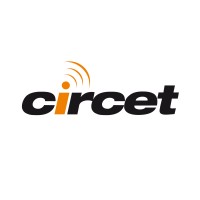Company Cyber Security Posture
NANA
NA Company Details
NA
NA
NA
NA
NA
NA
Scan still pending
NA
NA
Between 200 and 800
This score is AI-generated and less favored by cyber insurers, who prefer the TPRM score.
 NA Global Score
NA Global Score.png)

Company Scoring based on AI Models
| Model Name | Date | Description | Current Score Difference | Score |
|---|---|---|---|---|
| AVERAGE-Industry | 03-12-2025 | This score represents the average cybersecurity rating of companies already scanned within the same industry. It provides a benchmark to compare an individual company's security posture against its industry peers. | N/A | Between 200 and 800 |
Company Cyber Security News & History
| Entity | Type | Severity | Impact | Seen | Url ID | Details | View |
|---|
Company Subsidiaries

NA
Access Data Using Our API

Get company history
.png)
NA Cyber Security News
Maroc Telecom and Vodafone Business join forces to drive digital transformation in Morocco
This collaboration aims to position the country as a regional digital hub by 2030, with advanced solutions for businesses and public bodies.
Vodafone, Maroc Telecom ink enterprise pact
Vodafone Business and e& subsidiary Maroc Telecom unveiled a broad digital services partnership for the Moroccan market.
Vodafone expands in Africa with Maroc Telecom MoU
The partnership hopes to strengthen Vodafone's presence in Africa, where it already operates in eight countries through Vodacom and support ...
Vodafone Business, Maroc Telecom Partner to Accelerate Digital Solutions
Vodafone Business and Maroc Telecom signed a memorandum of understanding (MoU) on Thursday to deliver connectivity services and digital solutions to Moroccan ...
Vodafone Business, Maroc Telecom Partner to Expand Digital Services in Morocco
Vodafone Business and Maroc Telecom have signed a Memorandum of Understanding to provide connectivity and digital services to enterprise customers in ...
Vodafone and Maroc Telecom forge partnership to boost Morocco's digital services
Vodafone Business and Maroc Telecom signed a memorandum of understanding (MoU) on Wednesday, April 24, 2025, to provide connectivity ...
Maroc Telecom gains decline to $154M in Q1 2025
Morocco's biggest telecom company, Maroc Telecom, just posted a dip in its first quarter pr0fits. The company said gains fell by 5.9%, landing at 1.43 billion ...
Maroc Telecom joins forces with Vodafone to provide better services to private & public sectors in Morocco
Maroc Telecom and Vodafone Business have signed a Memorandum of Understanding (MoU) to provide connectivity and broad digital services to ...
Vodafone deepens e& ties with Maroc Telecom enterprise deal
Vodafone Business has reached an agreement with e&-backed Maroc Telecom to collaborate on providing digital services to enterprise customers ...

NA Similar Companies

Totalplay
Somos una empresa orgullosamente mexicana, líder en tecnología, telecomunicaciones y entretenimiento. Estamos siempre a la vanguardia con el objetivo de llevar a nuestros clientes lo mejor en conectividad, ya sea para que estén cerca de los que más quieren ó puedan alcanzar el éxito profesion

Vodafone
At Vodafone, we believe that connectivity is a force for good. If we use it for the things that really matter, it can improve people's lives and the world around us. Through our technology we empower people, connecting everyone regardless of who they are or where they live, we protect the planet a

MTNL
MTNL was set up on 1st April, 1986 by the Government of India to upgrade the quality of telecom services, expand the telecom network, introduce new services and to raise revenue for telecom development needs of India's key metros . Delhi, the political capital and Mumbai, the business capital of Ind

ACN
ACN is the leading direct selling telecommunications and essential services provider. ACN Inc. was founded in 1993 by four entrepreneurs and is now operating in North America. ACN offers essential products and services that people use every day, while also offering a powerful business ownership oppo

Circet
A global player in the telecom infrastructure services industry, the Circet Group provides operators, local authorities and key accounts throughout the world with an integrated turnkey offering of fixed and mobile infrastructure services, including engineering, deployment, installation and maintenan

Proximus Group
Proximus Group is a provider of future-proof connectivity and digital services, operating in the Benelux as well as global markets. As a major economic player in Belgium, we make the most of every opportunity to positively impact the world around us. The investments we make in our open fixed and mob

Frequently Asked Questions
Explore insights on cybersecurity incidents, risk posture, and Rankiteo's assessments.
NA CyberSecurity History Information
How many cyber incidents has NA faced?
Total Incidents: According to Rankiteo, NA has faced 0 incidents in the past.
What types of cybersecurity incidents have occurred at NA?
Incident Types: The types of cybersecurity incidents that have occurred include .
Additional Questions
What Do We Measure?
















Every week, Rankiteo analyzes billions of signals to give organizations a sharper, faster view of emerging risks. With deeper, more actionable intelligence at their fingertips, security teams can outpace threat actors, respond instantly to Zero-Day attacks, and dramatically shrink their risk exposure window.
These are some of the factors we use to calculate the overall score:
Identify exposed access points, detect misconfigured SSL certificates, and uncover vulnerabilities across the network infrastructure.
Gain visibility into the software components used within an organization to detect vulnerabilities, manage risk, and ensure supply chain security.
Monitor and manage all IT assets and their configurations to ensure accurate, real-time visibility across the company's technology environment.
Leverage real-time insights on active threats, malware campaigns, and emerging vulnerabilities to proactively defend against evolving cyberattacks.




